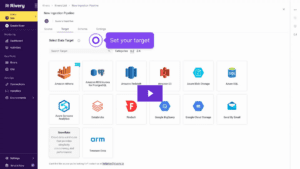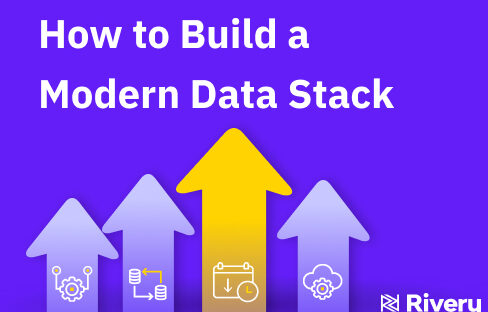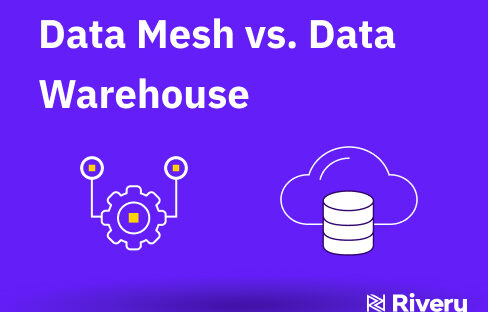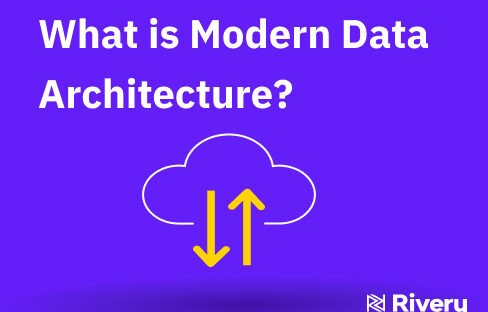Data in its raw form holds potential, but it is often messy and unusable. Data pipeline tools unlock that potential by extracting, cleaning, and delivering data in a ready-to-analyze format. In this blog post, we will examine the leading data pipeline tools of 2024 and help you find the right solution for your organization.
Introduction to Data Pipeline Tools
Data pipeline tools form the backbone of modern data management strategies. These tools streamline the complex processes of extracting data from various sources, including internal systems, customer interactions, social media, and IoT devices. Organizations need robust and reliable data pipeline tools to turn raw data into actionable business intelligence.
What is a Data Pipeline Tool?
Data pipeline tools are solutions that enable the automated data flow from origin to destination. They facilitate seamless integration with diverse data sources, handle complex transformations, and ensure reliable loading into data warehouses, data lakes, or other target systems. These tools eliminate time-consuming manual intervention, making data workflows faster and more reliable.
Essential Functionalities
Data pipeline tools provide a framework to automate the flow of data. These are the essential functionalities they offer:
- Connectivity: Broad support for diverse data sources and target systems.
- Graphical User Interface (GUI): Many tools provide a visual drag-and-drop interface to design data pipelines without extensive coding.
- Transformation Logic: Built-in functions or the ability to create custom transformations for cleaning, formatting, and manipulating data.
- Scheduling and Orchestration: Features to automate and schedule data pipeline execution.
- Monitoring and Error Handling: Mechanisms to track pipeline health and handle potential errors.
Things to Consider While Selecting a Data Pipeline Tool
Choosing the right data pipeline tool requires careful consideration. Key factors to evaluate include:
- Data Sources & Destinations: Ensure the tool supports your specific data sources and target systems
- Scalability: The ability to handle growing data volumes is critical.
- Ease of Use: Look for user-friendly interfaces and intuitive workflows.
- Transformation Capabilities: Assess the tools’ ability to perform necessary data transformations.
- Security & Compliance: Choose tools with strong security measures and adherence to industry regulations.
- Support: A responsive support team is invaluable.
1. Rivery
Rivery stands out as a leader among data pipeline solutions for 2024. Here’s why:
- User-Friendly Interface: Rivery’s focus on usability empowers both technical and non-technical users. Its intuitive interface and logical workflow simplify building and managing even complex data pipelines. Any data application can be built via Rivery – and be shared and reusable backed by internal and external communities via Kits & AI.
- A modern alternative to duct-taping data pipeline tooling: Get a pre-packaged SaaS data stack including Ingestion, Transformation, Orchestration, Activation, and DataOps instead of duct-taping a modern data stack and running into an integration maintenance sinkhole
- Low-Code Connection To Any Source: Bring in all of your ever growing data sources without having to onboard new tools or maintain complicated code
- Securely Move Data: Keep your data secured leveraging your own cloud file zone while benefiting from a managed data pipeline
- Robust Transformation Capabilities: Rivery offers a rich library of out-of-the-box transformations, as well as the ability to use SQL and custom logic for complex data manipulations.
2. Apache NiFi
Apache NiFi is a robust open-source project that offers a high degree of customizability and is backed by a large and active community. It is an excellent choice for organizations needing to manage highly complex data flows, as NiFi provides extensive data routing, transformation, and system mediation capabilities. While extremely powerful, NiFi generally demands a stronger technical background than other solutions on the market.
3. Talend
Talend extends beyond traditional data pipeline solutions, offering a complete suite of tools for data integration, quality, governance, and more. It supports batch and real-time data processing, making it a versatile solution for various use cases. The recent acquisition of Stitch brings a focus on simplified cloud-based ETL to the Talend platform.
4. Microsoft Azure Data Factory
Azure Data Factory leverages the power of the Microsoft Azure ecosystem. Organizations heavily invested in Azure benefit from seamless integration with other Azure services like Azure Synapse Analytics or Azure Databricks. It inherits the scalability and security of the Azure platform.
Azure Data Factory is an excellent choice if your data infrastructure is primarily based on Azure. Those requiring flexibility across multiple cloud platforms might opt for other solutions on the market.
5. Matillion
Matillion adopts a cloud-first approach specifically designed for cloud-based data warehouses like Amazon Redshift, Snowflake, or Google BigQuery. It optimizes the process of extracting, loading, and transforming data within these environments. Matillion excels at complex data transformations, offering a wide variety of pre-built functions and the ability to leverage the power of SQL.
If your workloads primarily center around cloud data warehouses and transformation, Matillion is worth serious consideration. Those with less SQL expertise might opt for a more user-friendly tool that supports a broader range of destinations.
6. Informatica PowerCenter
Informatica PowerCenter has a long history in the data integration space. It is known for its robust features and ability to handle large-scale data processing needs. PowerCenter supports various connectivity options, complex transformations, and advanced data quality features.
Informatica PowerCenter is best suited for large enterprises with complex data requirements. If you are looking for a more modern, user-friendly experience, there are other options on the market worth considering.
7. SnapLogic
SnapLogic distinguishes itself with its highly visual drag-and-drop interface and pre-built connectors called ‘Snaps.’ This approach simplifies building data pipelines, making it an accessible option for users without extensive coding experience. Additionally, SnapLogic incorporates artificial intelligence (AI) and machine learning to suggest appropriate transformations and optimize data flow.
8. Google Cloud Dataflow
Google Cloud Dataflow is a data pipeline tool whose key strength lies in its serverless architecture, eliminating the need to provision or manage the underlying infrastructure. It scales automatically to handle both batch and real-time data processing, making it versatile for different workloads.
Dataflow also integrates seamlessly with other Google Cloud services like BigQuery, Pub/Sub, and Cloud Storage. This integration is ideal for organizations that are deeply invested in the Google Cloud Platform. If you are invested in multi-cloud strategies, you should consider other options on the market that better support this use case.
9. Fivetran
Fivetran emphasizes fully managed data pipelines and pre-built connectors, allowing streamlined data loading into cloud data warehouses. In addition, it offers robust support for real-time data sources and streaming data use cases, empowering organizations needing near-instantaneous data availability.
10. AWS Glue
Similar to Google Cloud Dataflow, AWS Glue provides a serverless data integration experience. It simplifies ETL (extract, transform, load) processes by automatically generating code, reducing development overhead. Glue is well-optimized for other Amazon Web Services like S3, Redshift, and RDS, making it a strong fit for those heavily invested in AWS infrastructure. For organizations primarily using AWS, Glue offers seamless integration advantages.
Rivery For Your Data Pipelines
Rivery, is a secure SaaS platform for building end-to-end ELT data pipelines fast, with little to no coding required. Rivery is a modern response for clients looking for an ELT cloud-based solution, with several components of the modern data platform combined in a single platform. With over 200 no-code fully-managed connectors, advanced workflow orchestration, Data transformations via SQL and/or Python, reverse ETL (data activation), and data operations (full support for the development lifecycle/DataOps) Rivery works to best fit your data needs.
Unlike other ELT platforms, Rivery doesn’t charge by the number of databases or tables you’re loading into your data warehouse, nor does it charge by the number of rows or sync frequencies. Rivery offers on-demand pay-as-you-go pricing so you only pay for what you use.
Looking to join over 350 brands that use Rivery to create robust end-to-end data pipelines at scale, speed, and with full transparency? Get started with 1,000 free credits.
Minimize the firefighting. Maximize ROI on pipelines.





